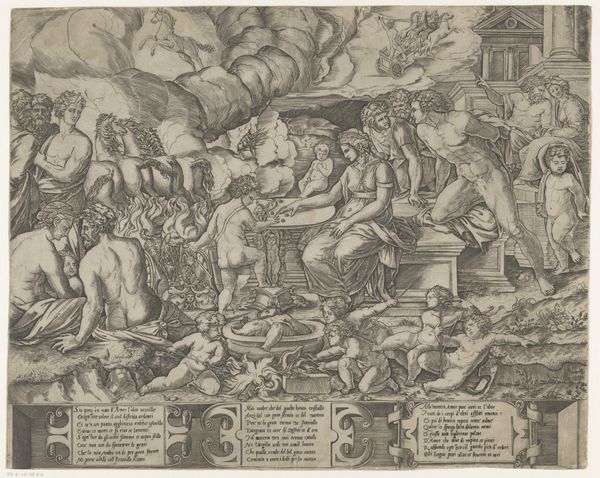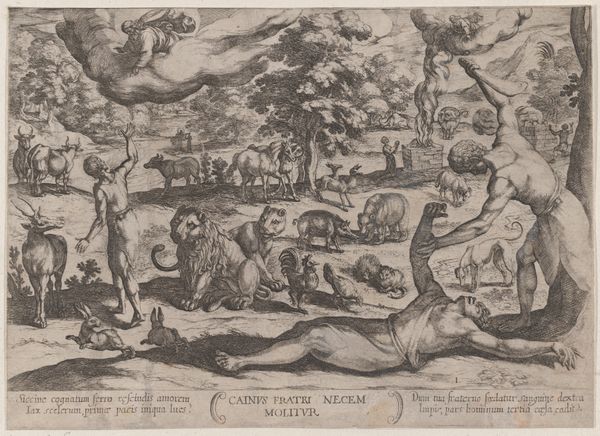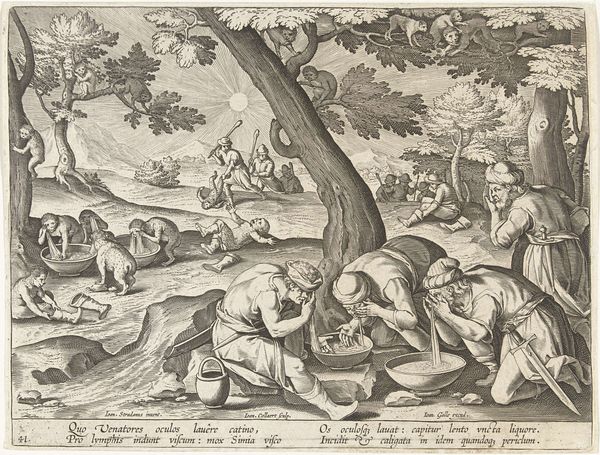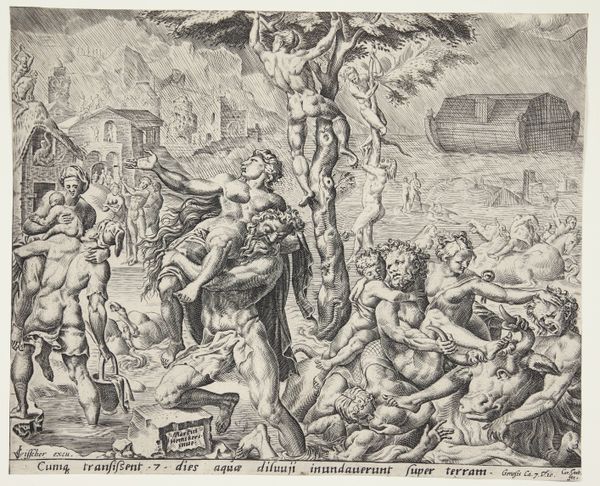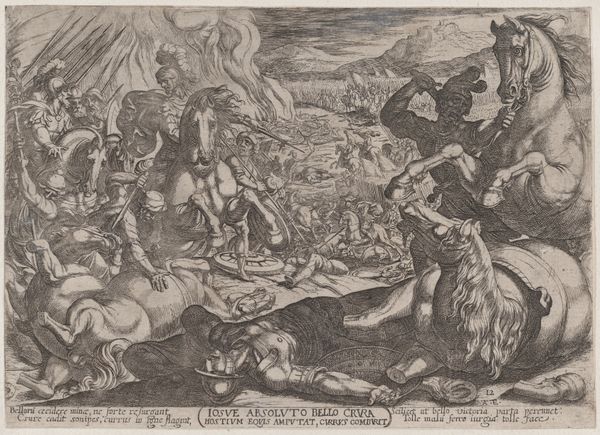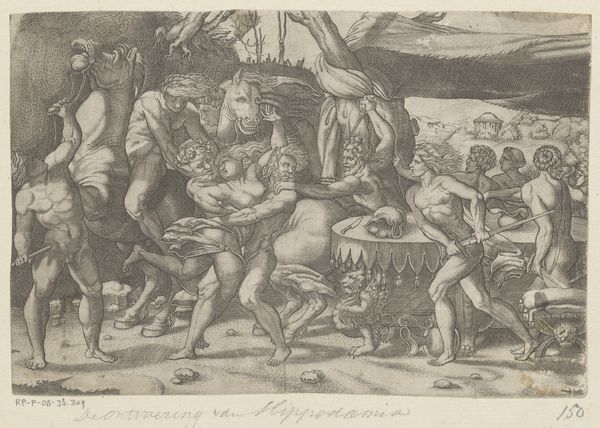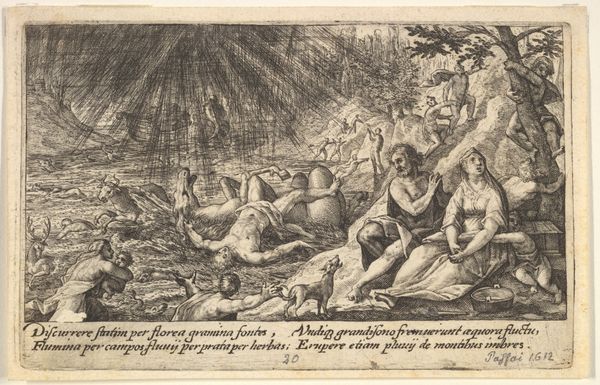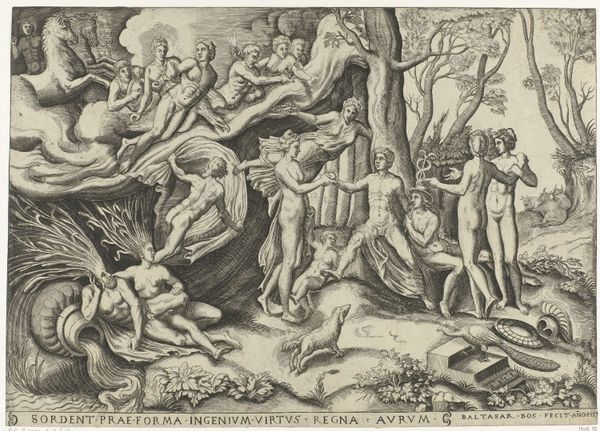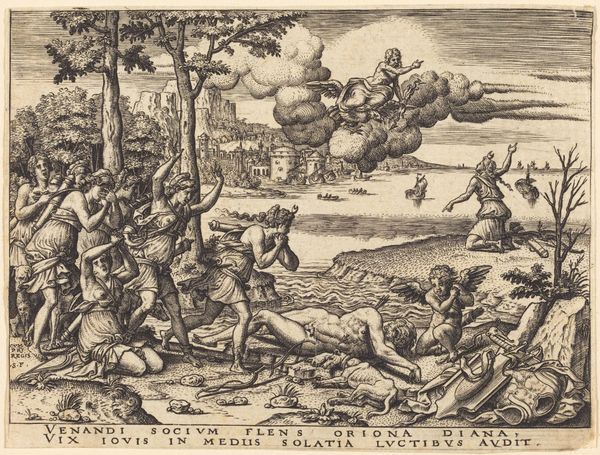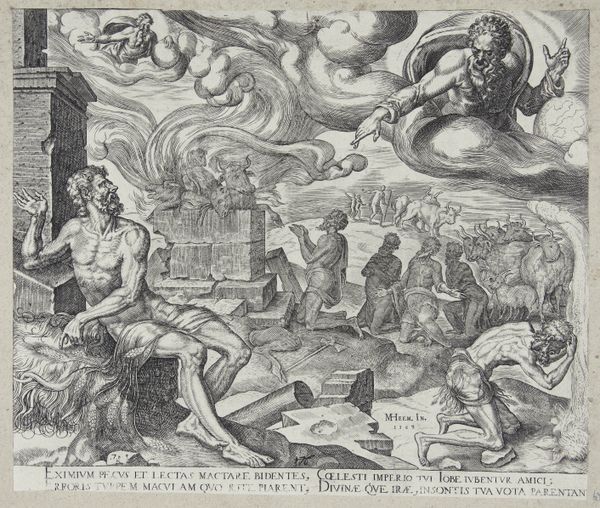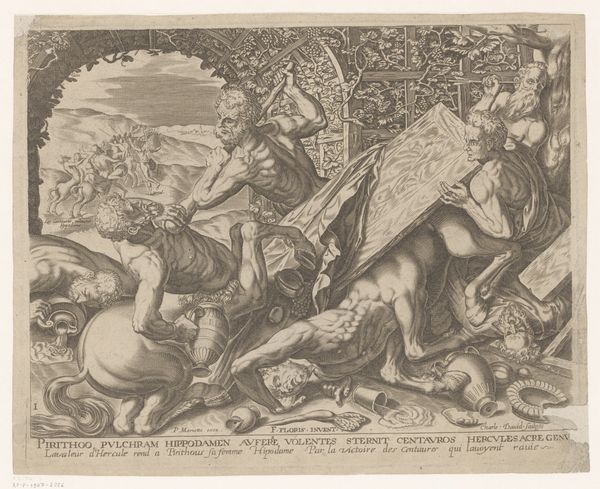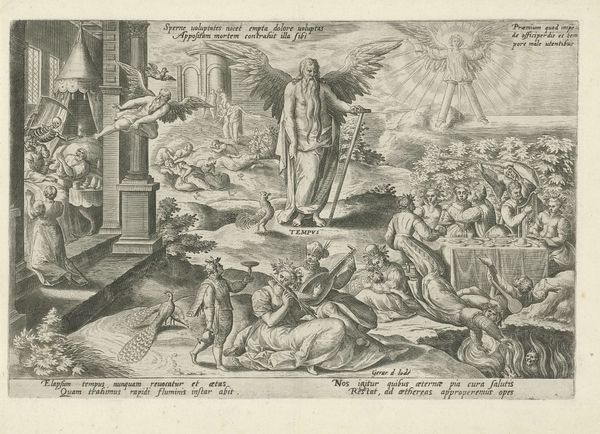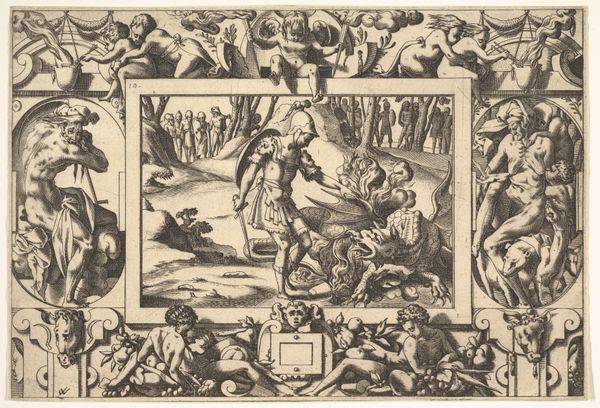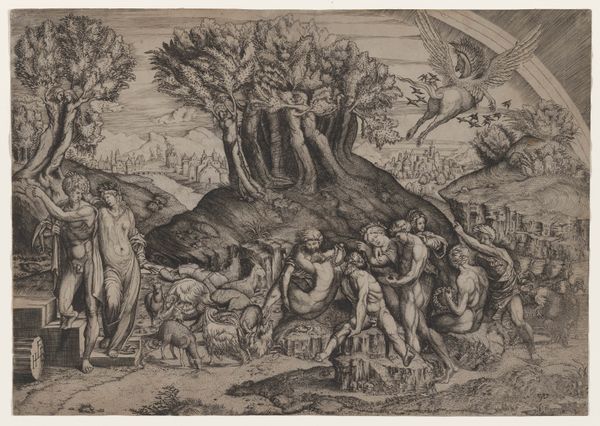
drawing, print, intaglio, engraving
#
drawing
#
ink drawing
#
narrative-art
#
baroque
#
pen drawing
# print
#
intaglio
#
figuration
#
genre-painting
#
history-painting
#
engraving
Copyright: Public Domain
This engraving, made by an anonymous artist, likely dates to the 16th or 17th century. Its fine lines were achieved using a metal plate, probably copper, into which the design was incised with burins and other tools. The plate would then have been inked and printed onto paper, a painstaking process that could be repeated many times to create multiple impressions. The resulting image is a disturbing scene of violence, reflecting the social and political turmoil of the time. You'll notice that people are being butchered and even eaten by giant fish. This alludes to social hierarchy, and the various ways that power is abused. The phrase that runs across the top, in Latin, translates to "More cruel than orphans and the oppressor of widows." The print’s stark black and white contrast emphasizes the drama of the scene, while the meticulous detail conveys a sense of realism. Ultimately, the meaning of this engraving lies not only in its imagery but also in the labor-intensive process that brought it into being. It stands as a reminder of the critical role that making plays in shaping our understanding of the world around us.
Comments
No comments
Be the first to comment and join the conversation on the ultimate creative platform.
